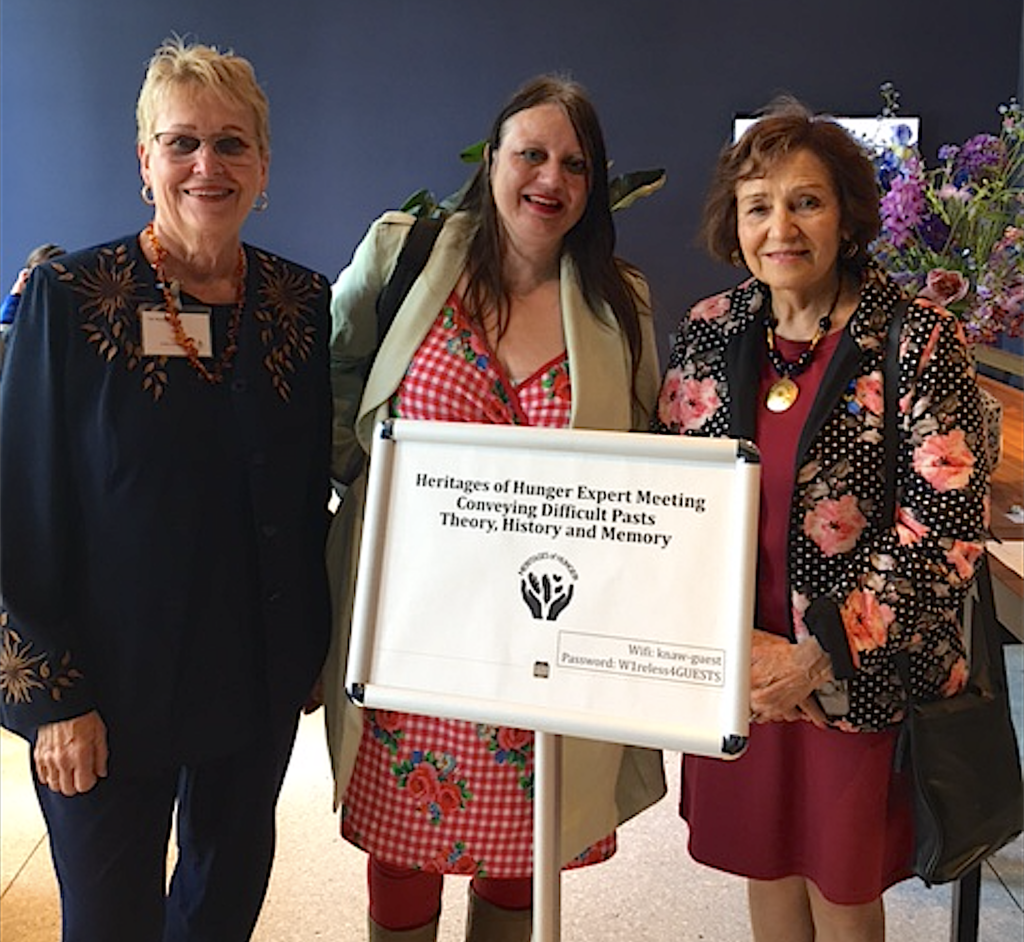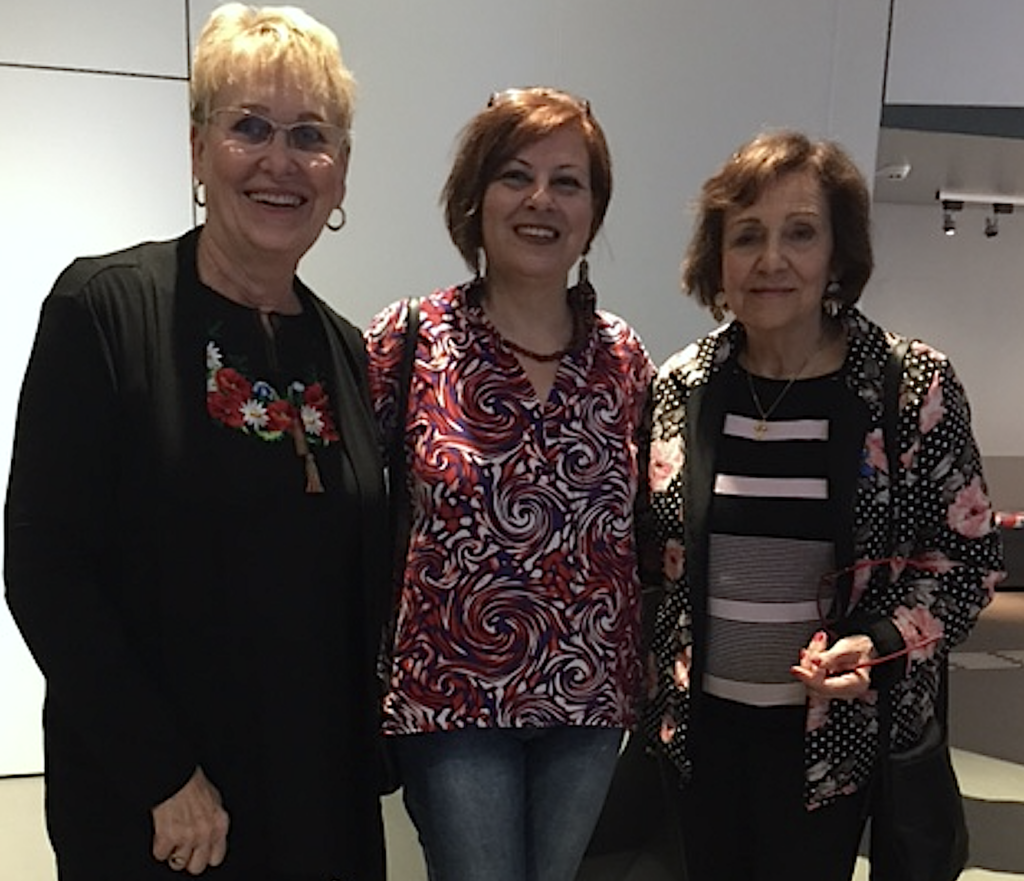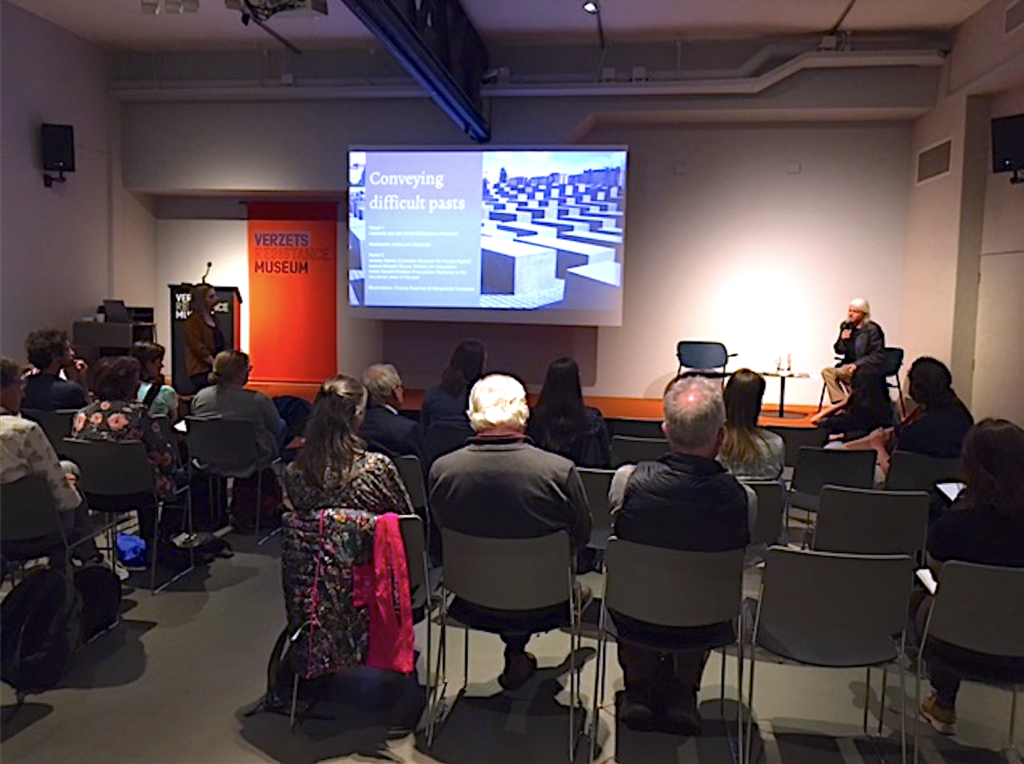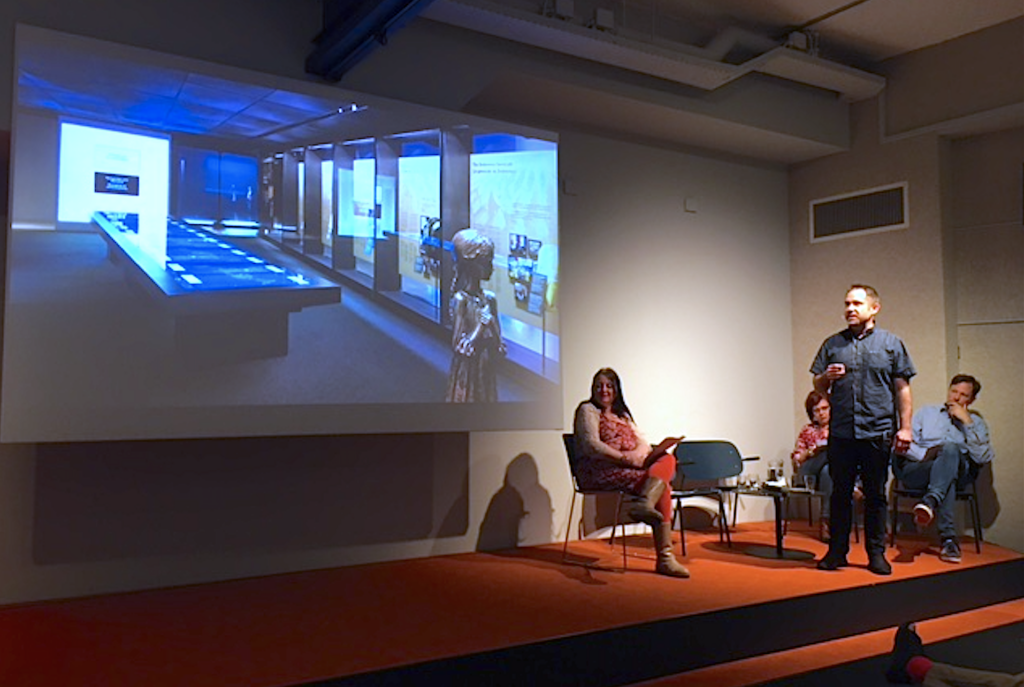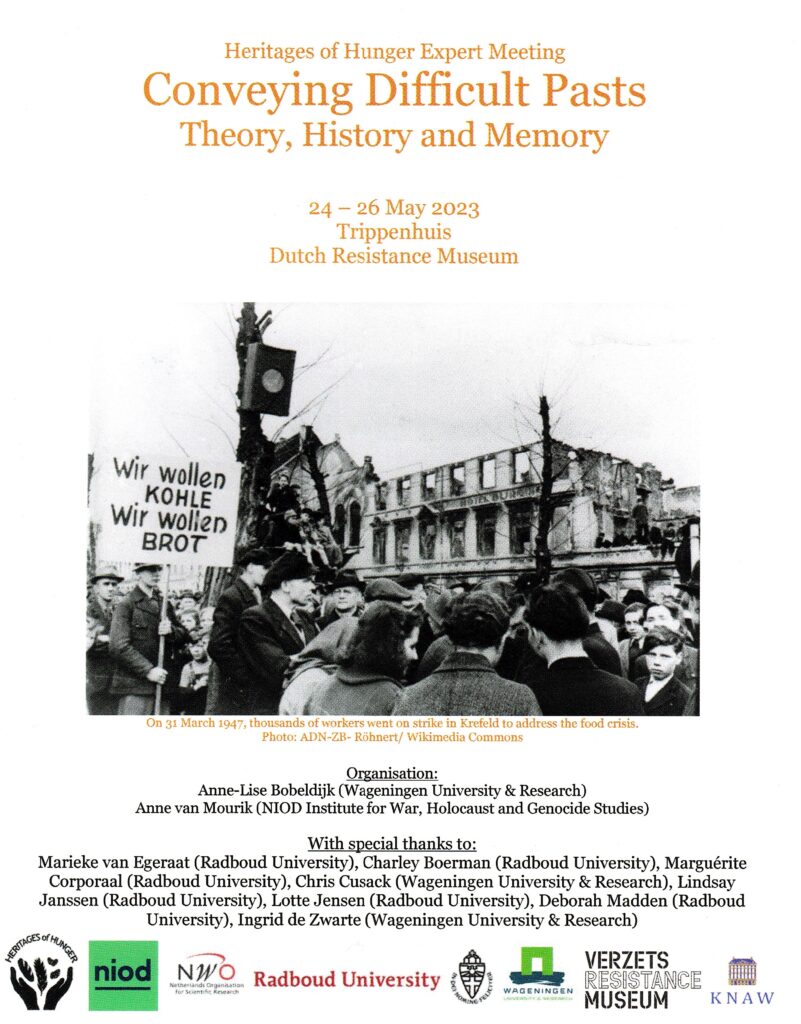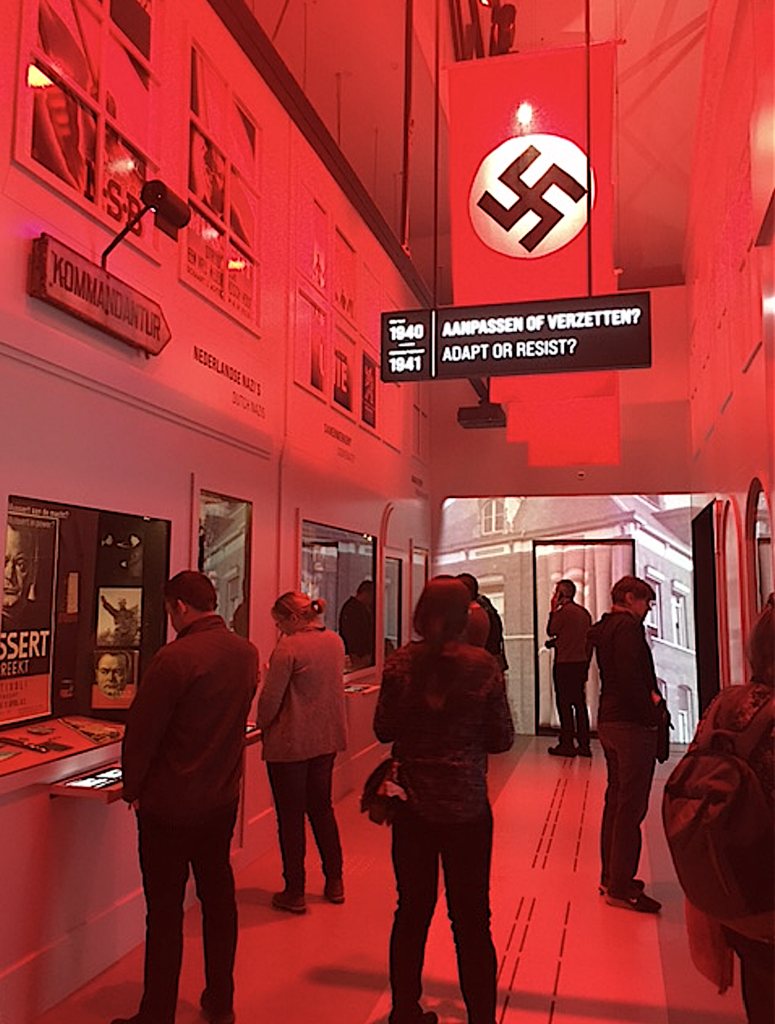How Do We Deal with Difficult Pasts? Heritages of Hunger Experts Conference.
The Heritages of Hunger Consortium’s “Conveying Difficult Pasts: Theory, History and Memory” Expert Meeting at The Dutch Trippenhuis and the Versetz Resistance Museum, in Amsterdam, Netherlands took place with about 50 in-person participants over 3 days, from May 24-26th this year. The program included 2 keynotes, workshop groups, presentations on current research of European famines and ended with an international roundtable on heritage and memory practices. HREC Director of Education Valentina Kuryliw attended the conference with Val Noseworthy, Holodomor Awareness and Education Chair for the Manitoba Council of the Ukrainian Canadian Congress and a HREC Education Advisory Committee member and Manitoba Education Consultant.
Val Noseworthy reflected: “The Heritages of Hunger Conference was an enlightening, encouraging and inspiring conference. I greatly appreciated the opportunity to attend and to meet such knowledgeable and forward-thinking researchers and supporters on the topic of hunger, war, and genocide.” She further noted the following topics discussed struck her foremost from the conference: that a universal working definition of hunger is needed to determine at what point hunger is classified as a famine, and that there is a need for a common hunger lexicon; that famine memory and commemoration are critically important in the study of hunger; that food can be used as a weapon or a form of propaganda and that official and unofficial hunger narratives can exist; that without social memory, it is difficult to maintain national memory; that topics such as hunger should be studied because the voices of those who suffered from hunger should be heard and acknowledged; that research can affect understanding of representation of victimhood; that multi-generational family stories about hunger can be presented and preserved through fiction and autobiography and there is a need for more publication of hunger accounts; and that closer connections between research and education will raise public knowledge and understanding of hunger and may increase advocacy and action for the elimination of hunger.
The Heritages of Hunger project explores how educational practices in schools and heritage sites can strengthen mutual understanding and solidarity on the topic of famine. It investigates how educational practices (at schools, heritage sites, museums, or surrounding commemorative practices) can create awareness of famines as heritages of shared experiences and past solidarity among European communities. Bringing together about 50 experts on European famines from a wide range of scholarly disciplines, institutions and geographic regions, such as the European Union and North America, this international project is coordinated by Marguerite Corporaal of Radboud University (RU), and headed by Radboud University, the Wageningen University & Research (WUR), and the Institute for War, Holocaust and Genocide Studies (NIOD), all in The Netherlands. HREC has been a partner since the beginning of this project to inform and share educational practices on the topic of the Holodomor. Earlier in the year, Valentina Kuryliw and HREC Executive Director Marta Baziuk participated in reviewing a prototype of the partnership’s fledgling culminating project – a database of resource materials for educators at the high school level who teach any of the European famines and genocides by hunger that occurred or were perpetrated by Europeans.
HREC is partnering with the Heritages of Hunger Consortium on their upcoming conference which will take place in Toronto in April 2024, the planning for which has currently already begun.
